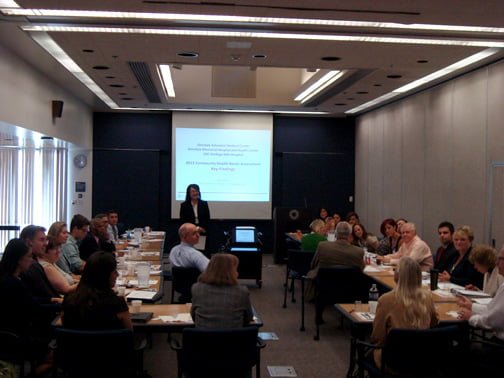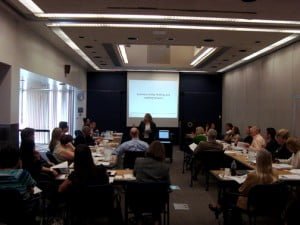
By Jason KUROSU
The Glendale Healthier Community Coalition, a collective of 52 organizations including USC Verdugo Hills Hospital, Glendale Adventist Medical Center and Glendale Memorial Hospital, conducted research on health within the region, in accordance with Affordable Care Act requirements for nonprofit hospitals. With the aid of the Center for Nonprofit Management, the coalition collected data from various national health organizations, as well as from community leaders in a February 2013 focus group.
The Center for Nonprofit Management presented its findings to the coalition on Thursday morning during its regular meeting at USC Verdugo Hills Hospital. The Community Needs Health Assessment aimed to not only identify areas of concern as far as local health issues go, but also what social activities promote or inhibit these issues in the community.
The assessment noted a number of trends, both positive and otherwise. The data indicated rises in obesity, alcoholism and drug abuse, cardiovascular disease and other health issues, while also indicating a decrease in smoking. Many of the high statistics of increased negative health rates exceeded Los Angeles countywide and California statewide numbers, in terms of percentage of the total population.
Maura J. Harrington, vice president and chief operating officer for the Center for Nonprofit Management, represented the group on Thursday.
Harrington allowed that some of the data collected for the assessment were a matter of perspective.
“What we found is that some people experience life and health concerns a little differently than what the data actually show,” said Harrington.
She said one of the factors affecting the whole of the data was economic conditions, which “certainly had a deep impact on the data, in terms of people’s wellbeing.” The assessment indicated that about 31.8% of adults polled were uninsured in 2011 and one-third of adults reported difficulty in obtaining medical care.

“Issues are increasing, but resources are not,” she added.
The assessment also intended to give hospitals direction on what to explore in order to combat these prevalent issues. The focus group that was held with community representatives and stakeholders indicated that they feel family-based interventions and health fairs can increase public education about what activities may positively or negatively affect their health and what resources are available.
It remains to be seen what the coalition will do with the findings of the assessment, though Edna Karinski of the coalition expressed confidence in the ability to manifest something positive from the data.
“It’s all of you coming together which has made this coalition so successful,” said Karinski at the outset of the meeting.
To view the full findings of the Community Needs Health Assessment, visit http://www.healthyglendale.org/chna.
